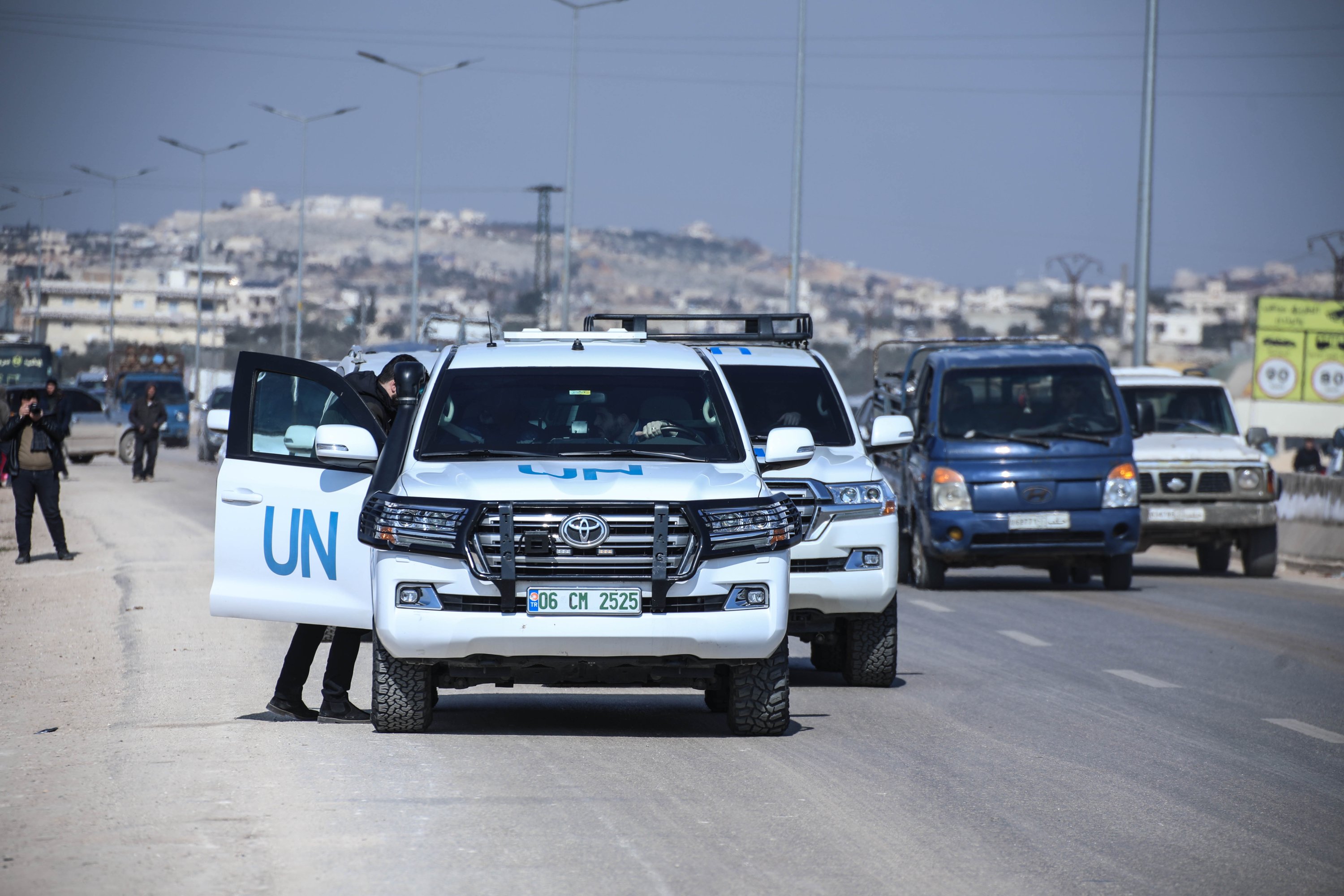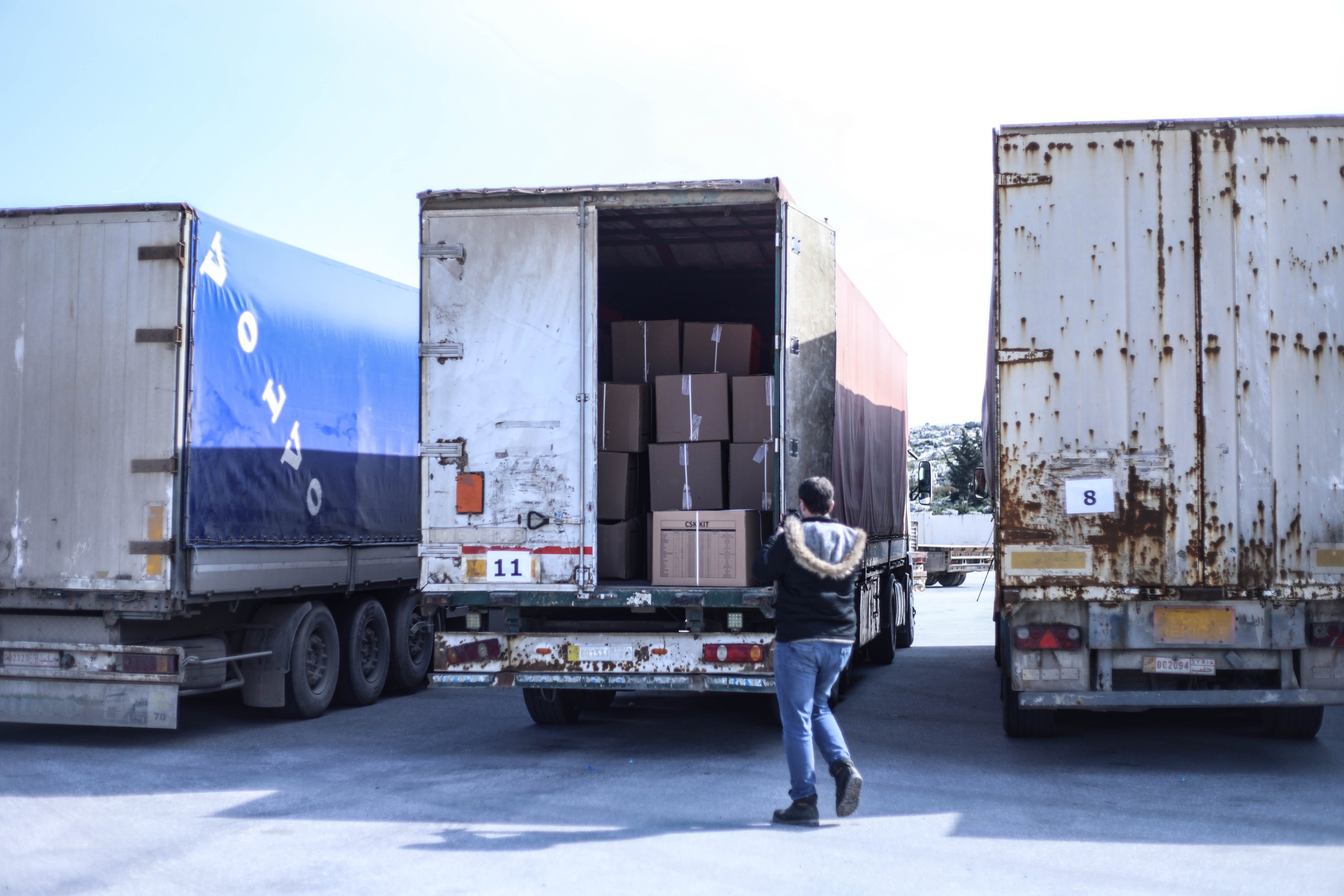© Turkuvaz Haberleşme ve Yayıncılık 2024
Last Monday's "disaster of the century" caused further devastation for an already embattled region, as a staggering 171,843 people have been left homeless in the northwest of Syria due to southeast Türkiye's Kahramanmaraş-centered twin earthquakes, according to a Syrian humanitarian organization's report.
However, a much-welcomed respite has seemingly come for Syria, as 140 trucks loaded with urgently needed aid have crossed over into opposition-held northwestern Syria from Türkiye, according to a statement from the United Nations on Friday.
Thursday's statement by the Syria Response Coordination, said, "The U.N. aid is still within the minimum limits, where only 114 trucks have reached in one week, 93% of which came through the Bab al-Hawa crossing, despite the opening of two additional crossings."

The organization had spoken of "general dissatisfaction in the region with the delay in the arrival of humanitarian aid from the U.N.," noting that the U.N. aid "did not exceed 25% of the total aid that entered northwestern Syria."
The organization criticized "the great politicization" of incoming humanitarian aid, especially international, as well as the directing of large amounts of relief to regime-controlled areas, which received "90% of the aid for the victims of the earthquake."
Jens Laerke, a spokesperson for the U.N. Coordination of Humanitarian Affairs (OCHA) humanitarian agency, in Geneva on Friday said, "Since Feb. 9 up to last night, we had a total of 143 trucks going through the Bab al-Hawa and Bab al-Salama border crossings,"
"The movements continue today. They continue over the weekend and will continue every day for as long as the needs are there."
Eleven days after the quake that killed more than 41,000 people in Türkiye and Syria, the situation in Syria's opposition-held northwest remains dire due to the slow arrival of aid to a region ravaged by years of conflict.
Before the earthquake struck, almost all the crucial humanitarian aid for the more than 4 million people living there was delivered through just one crossing, Bab al-Hawa.
Operations there were temporarily disrupted by the quake damage.

It took four days to get aid moving across that border crossing again, and earlier this week, Damascus agreed to allow the U.N. to open two further border crossings to help bring in more aid.
"We expect to have trucks crossing every single day," Laerke said.
So far, aid has flowed through the Bab al-Hawa and Bab al-Salama crossings but no trucks have gone through the third crossing, Al Raee, he said.
"That doesn't mean that it is not going to come, but it is a bit further away from the hub and the U.N. monitoring mechanism that is inspecting all of the aid that is coming through," he said.
Laerke said the trucks that have crossed since the quake have been carrying "a multitude of aid" from six U.N. agencies: the International Organization for Migration, the U.N. High Commissioner for Refugees (UNHCR), the U.N. Population Fund, the U.N. children's agency UNICEF, the World Food Programme (WFP) and the World Health Organization (WHO).
"Aid has so far included tents, non-food items, such as mattresses and blankets, winter clothes, cholera testing kits, essential medicines and World Food Programme food," he said.
On the other hand, relief planes continue to be sent from the United Arab Emirates (UAE) to provide much-needed assistance to the survivors of the devastating earthquakes.
A total of 91 cargo planes have taken off so far as part of Operation Chivalrous Knight 2, the Emirati Defense Ministry announced on Twitter.
The ministry stated that 2,549 tons of humanitarian aid have been sent amid ongoing relief efforts for the victims of the earthquakes in Türkiye and Syria.
On Thursday, the Emirati WAM news agency said 78 relief planes had been sent, including 44 cargo planes to Syria and 34 to Türkiye, adding that these planes carried 2,107 tons of food and medical supplies and tents.
The magnitude 7.7 and 7.6 tremors last week that ravaged southern Türkiye, impacting a larger area and over 13 million inhabitants, have been described as the worst in modern history.
